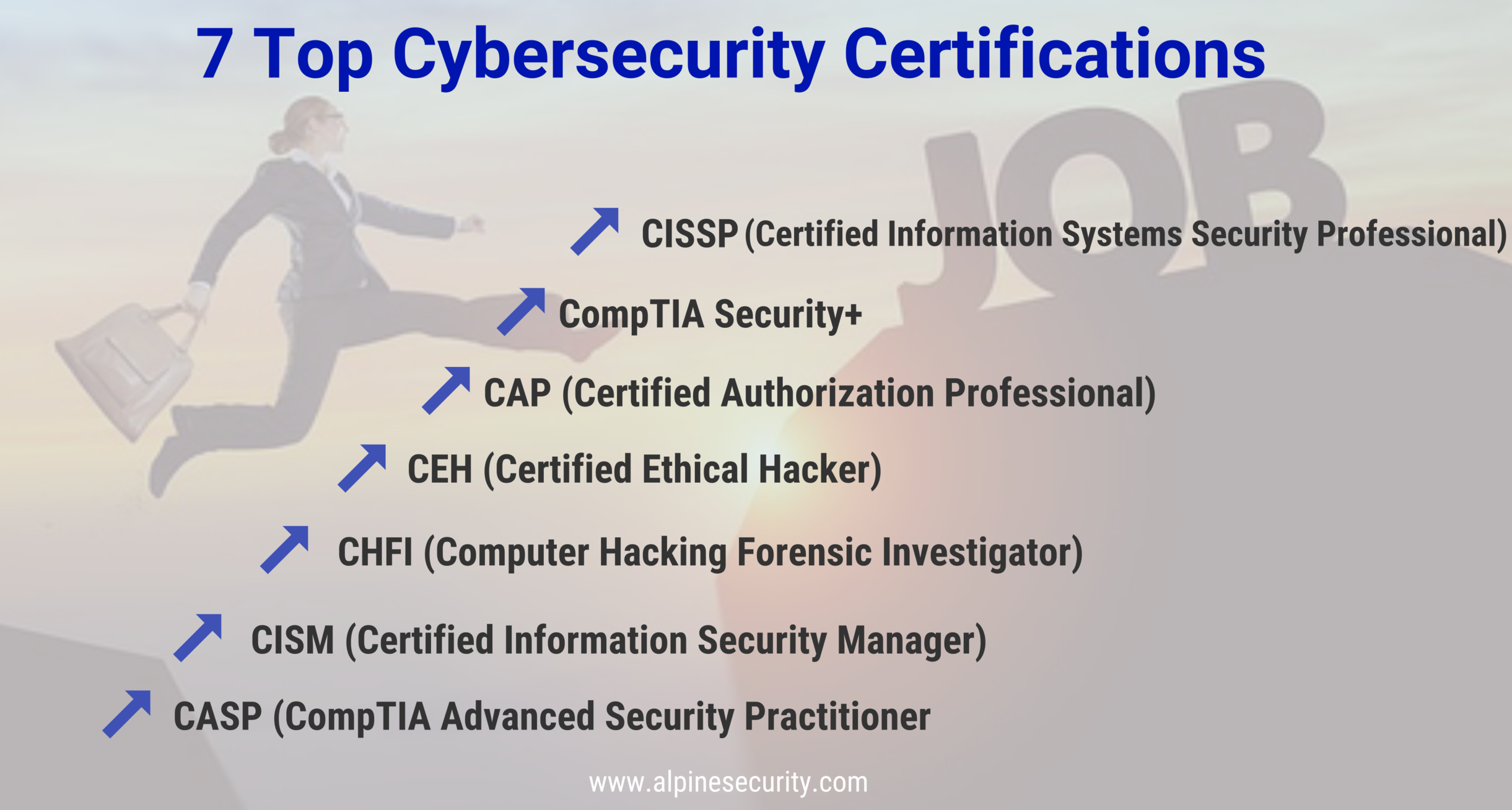Cyber security is a critical field in today’s digital world as it provides the necessary defenses to protect organizations from cyber threats. With new technology and digital systems emerging daily, it is essential for organizations to have staff members with the most up-to-date certifications and training in cyber security. Those seeking to increase their career opportunities in cyber security may be wondering what certifications they should pursue.
This article will provide an overview of the certifications available to those looking to enter the field of cyber security and the benefits of each. It will also provide an introduction to the various organizations that offer certifications and how to go about getting them. By the end of this article, readers will have gained a better understanding of the various certifications available and how to pursue them.
The best certifications for cyber security depend on your experience level and career goals. For entry-level professionals, Certified Information Systems Security Professional (CISSP) is a great place to start. For more experienced professionals, Certified Ethical Hacker (CEH), CompTIA Security+ and GIAC Security Essentials (GSEC) are recommended.

Certifications for Cyber Security
Cyber security is a rapidly expanding field with a vast array of certifications that can help you develop your career. Whether you are just starting out or looking to advance your skills, there is a certification to fit your needs. In this article, we will discuss what certifications should you get for cyber security.
CompTIA Security+
CompTIA Security+ is a globally recognized certification that covers a wide range of security topics. This certification provides an understanding of network security, compliance and operational security, threats and vulnerabilities, access control, and cryptography. The exam is designed for IT professionals who have at least two years of experience in network security, and the certification is valid for three years.
The Security+ certification is an excellent starting point for those who are new to cyber security. It provides a comprehensive overview of security concepts, while also testing your knowledge on specific topics. With this certification, you will have the skills necessary to design and implement secure networks and systems.
Certified Information Security Manager (CISM)
The Certified Information Security Manager (CISM) is a certification designed specifically for those in a management role. This certification covers topics such as risk management, incident response, security policies, and business continuity. The exam is designed for IT professionals who have at least five years of experience in information security, and the certification is valid for three years.
The CISM certification is ideal for those who are looking to advance their career in cyber security. It provides the knowledge necessary to manage secure information systems and ensure that they are compliant with security policies. With this certification, you will have the skills necessary to lead and manage a team of security professionals.
Certified Information Systems Auditor (CISA)
The Certified Information Systems Auditor (CISA) is a certification that covers the auditing of information systems. This certification covers topics such as IT governance, controls, and assurance. The exam is designed for IT professionals who have at least three years of experience in information security, and the certification is valid for three years.
The CISA certification is ideal for those who are looking to audit the security of information systems. It provides the knowledge necessary to assess the security of an organization’s information systems and ensure that they are compliant with security policies. With this certification, you will have the skills necessary to audit and assess the security of an organization’s information systems.
Certified Ethical Hacker (CEH)
The Certified Ethical Hacker (CEH) is a certification that covers the ethical hacking of networks and systems. This certification covers topics such as penetration testing, vulnerability assessment, and social engineering. The exam is designed for IT professionals who have at least two years of experience in information security, and the certification is valid for three years.
The CEH certification is ideal for those who are looking to become an ethical hacker. It provides the knowledge necessary to test the security of networks and systems. With this certification, you will have the skills necessary to identify and exploit vulnerabilities in systems and networks.
Certified Cloud Security Professional (CCSP)
The Certified Cloud Security Professional (CCSP) is a certification that covers the security of cloud computing environments. This certification covers topics such as cloud architecture, governance, and compliance. The exam is designed for IT professionals who have at least two years of experience in information security, and the certification is valid for three years.
The CCSP certification is ideal for those who are looking to secure cloud computing environments. It provides the knowledge necessary to design and implement secure cloud computing architectures. With this certification, you will have the skills necessary to secure cloud computing environments and ensure that they are compliant with security policies.
Frequently Asked Questions
Information Security is an increasingly important field. With the ever-evolving technology landscape, employers are looking for professionals who have the right certifications and qualifications to help them stay ahead of the curve. Here are some of the most popular certifications for Cyber Security professionals.
What Certifications Should I Get for Cyber Security?
The most in-demand certifications for Cyber Security professionals include the Certified Information Systems Security Professional (CISSP), CompTIA Security+, and Certified Ethical Hacker (CEH). The CISSP is considered the most comprehensive certification for information security professionals, and it is considered a gold-standard for security professionals. The Security+ is a vendor neutral certification from CompTIA, and is suitable for those who are just starting out in the field. CEH is a comprehensive certification from the EC-Council, and is designed to teach professionals how to identify, exploit, and report security vulnerabilities.
In addition to these certifications, many employers also seek out professionals with experience in specific technologies, such as firewalls, intrusion detection systems, and malware analysis. Depending on your career goals, you may want to pursue certifications in these areas as well. Learning new technologies is a great way to stay ahead of the curve, and can help you stand out among your peers.

Overall, the certifications you choose should reflect your current career goals in the cyber security field. All certifications have a different value and offer a variety of benefits to the certified individual. Consider the certifications that are most beneficial to your current position and the ones that are most likely to help you reach your future goals.
A certification in cyber security can help open doors to a new career as well as provide recognition in the industry. With the right certifications, you can become an expert in cyber security, and prepare yourself to continue to stay ahead in the ever-evolving digital world.




